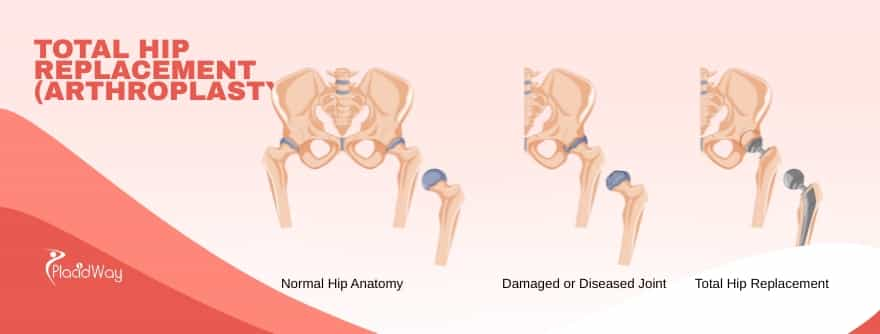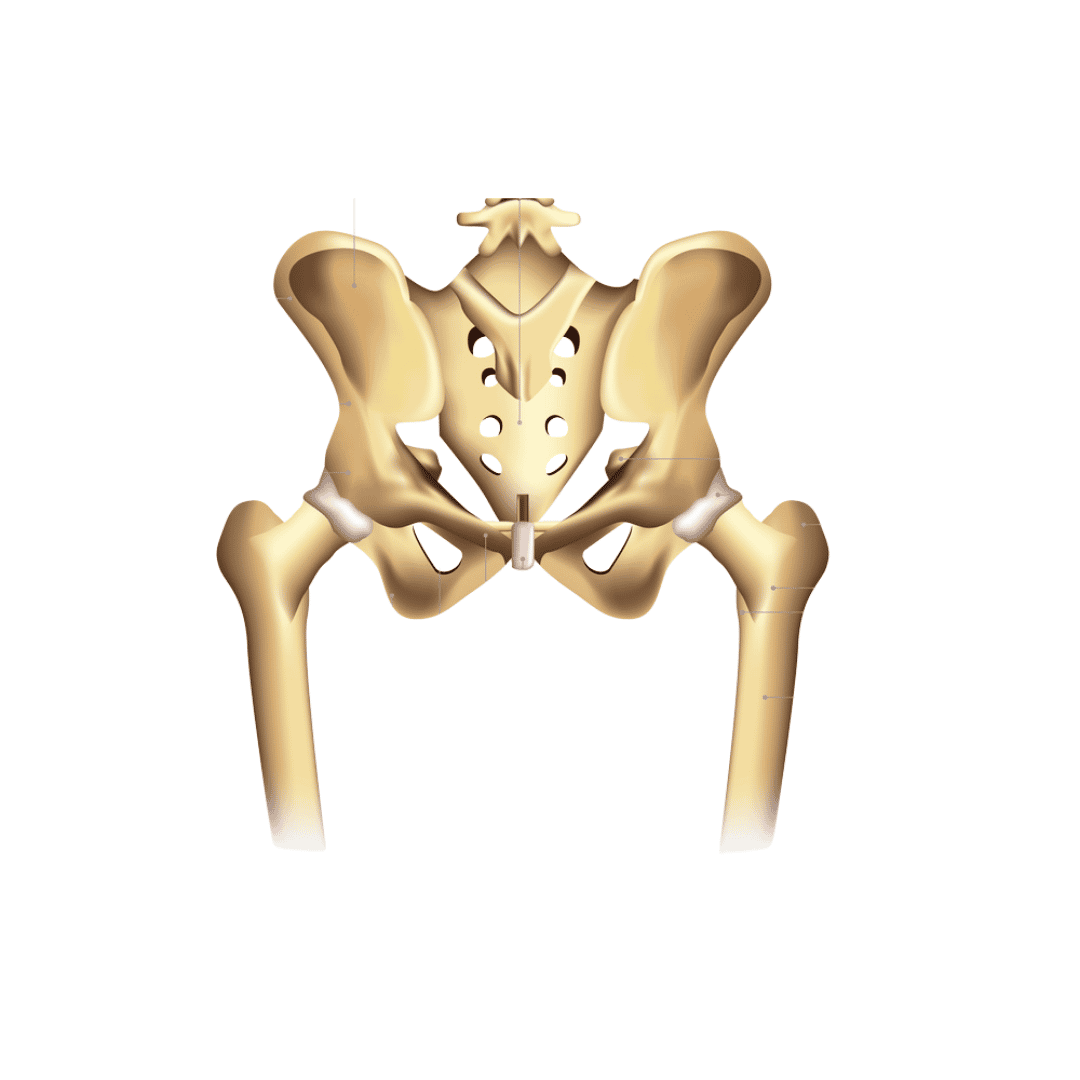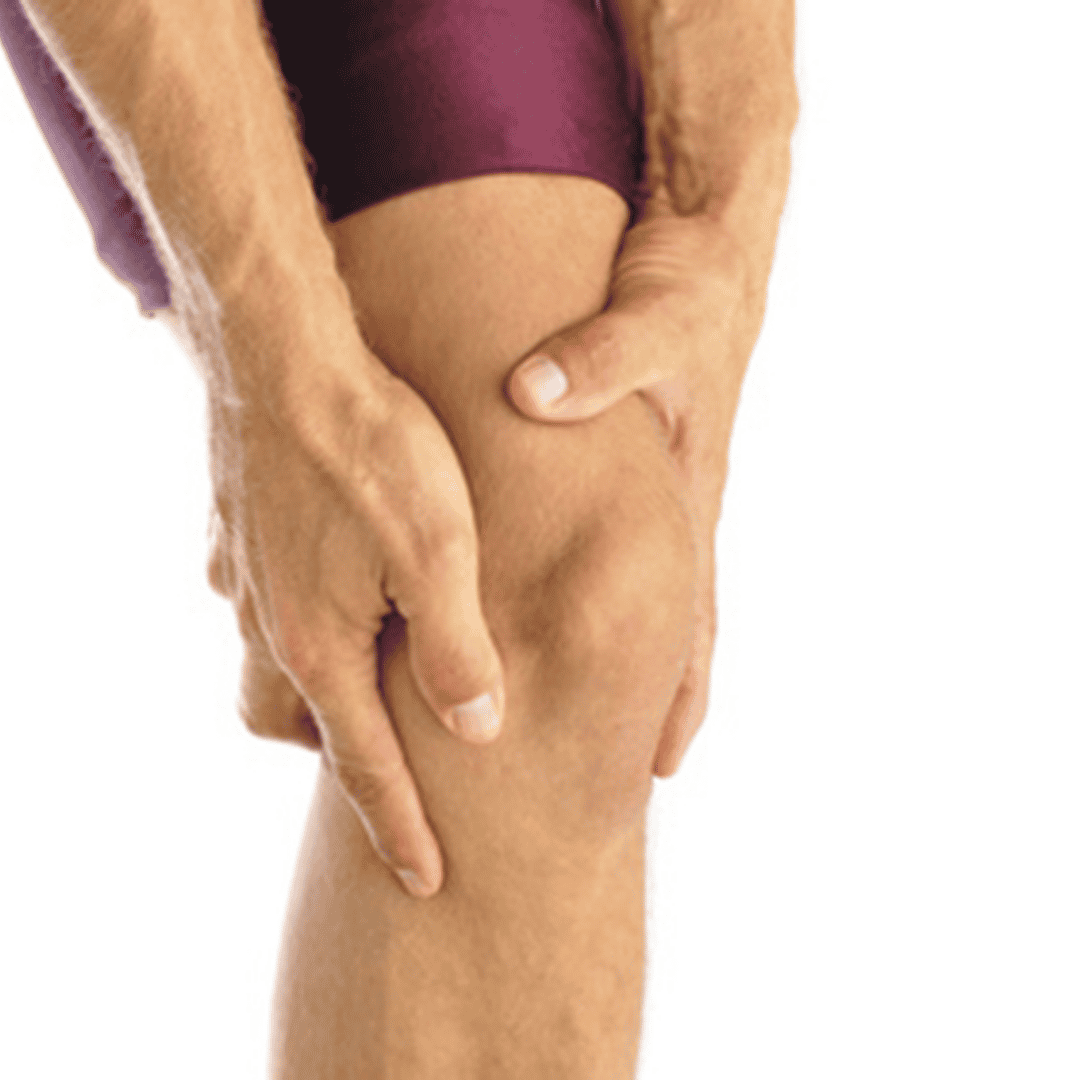
Living with chronic hip pain in Manchester can be a frustrating, debilitating experience. While the UK's NHS provides excellent care, the waiting times for orthopaedic surgery can stretch on for months, leaving you in pain and unable to live your life fully. Opting for private treatment in the Manchester area offers a faster solution, but at a cost that is prohibitive for many.
There is, however, a world-class alternative. Istanbul, Turkey, has become a premier global destination for advanced hip replacement surgery. For a fraction of the cost of private UK care, you can receive immediate treatment from top-tier, internationally trained surgeons in JCI-accredited hospitals. This guide explores why traveling from Manchester to Istanbul for your hip replacement is a safe, affordable, and highly effective solution to reclaim your mobility.
Key Takeaways
-
Massive Cost Savings: Manchester residents typically save 50-70% on private hip replacement surgery by choosing Istanbul, even after accounting for flights and accommodation.
-
No Waiting Lists: Bypass the extensive NHS waiting times (often 18+ weeks) for orthopaedic procedures and schedule your surgery immediately.
-
World-Class Standards: Treatment is performed in JCI-accredited hospitals, the global gold standard for safety and quality, often using more advanced robotic technology than is widely available in the UK.
-
Cost at a Glance:
-
Istanbul, Turkey (All-Inclusive Package): $9,000 - $14,000
-
Manchester, UK (Private Care): $15,000 - $25,000+
-
United States (Private Care): $30,000 - $50,000+
-
Why Choose Istanbul for Your Hip Replacement Surgery?
Istanbul offers a compelling combination of significantly lower costs, access to world-class surgeons using the latest technology, and minimal waiting times. This makes it a prime destination for Manchester residents facing long NHS queues or prohibitively high private healthcare fees in the UK.
For individuals in Manchester suffering from chronic hip pain, the prospect of surgery can be daunting. In the UK, while the quality of care on the NHS is high, the waiting lists for orthopaedic surgery can be agonizingly long. Opting for private care in the Manchester area provides a faster solution but at a steep cost.
Istanbul, Turkey, has emerged as a global hub for medical tourism, particularly in orthopaedics. The city boasts numerous JCI-accredited hospitals (Joint Commission International), the global gold standard for healthcare quality. These facilities are often more modern than their Western counterparts and are staffed by highly qualified, English-speaking surgeons trained in Europe and the US.
Escaping NHS Waiting Times
One of the primary drivers for UK patients seeking treatment in Turkey is the ability to bypass the extensive waiting lists for orthopaedic surgery on the NHS, which can often exceed 18 weeks and sometimes extend over a year for non-urgent (elective) procedures.
Chronic hip pain, often caused by osteoarthritis, degenerative joint disease, or rheumatoid arthritis, is not just an inconvenience; it's a debilitating condition that severely impacts quality of life. Waiting months or years for a total hip arthroplasty (THA) means enduring prolonged pain, reduced mobility, and potential muscle degradation. In Istanbul, the process is immediate. From initial consultation to surgery, the timeline is often dictated by the patient's schedule, not a queue.
Advanced Technology and JCI-Accredited Hospitals
Turkish hospitals in Istanbul invest heavily in cutting-edge medical technology, including robotic-assisted surgery systems (like Mako) and advanced diagnostic imaging, often surpassing the standard equipment available in general hospitals.
This commitment to technology translates to better patient outcomes. Procedures like Minimally Invasive Surgery (MIS) are standard, leading to smaller incisions, less muscle damage, reduced blood loss, and a faster overall recovery. For a patient traveling from Manchester, this means a quicker return to mobility and an easier journey home.
Did You Know?
JCI-accredited hospitals must meet over 1,000 measurable standards related to patient safety and quality of care. Istanbul has one of the highest concentrations of JCI-accredited facilities in the world, giving patients from Manchester peace of mind.
Understanding Hip Replacement Surgery (Total Hip Arthroplasty)
Hip replacement, or total hip arthroplasty, is a highly successful surgical procedure that involves removing the damaged or diseased parts of the hip joint and replacing them with a durable, artificial prosthetic implant.
The hip is a ball-and-socket joint. The "ball" (femoral head) at the top of your thigh bone fits into the "socket" (acetabulum) in your pelvis. When the cartilage cushioning these bones wears away, the bones rub together, causing intense pain and stiffness. The surgery replaces this damaged joint, effectively eliminating the source of the pain and restoring fluid movement.

What is Hip Replacement Surgery?
The goal of the surgery is to relieve pain and restore function. During the procedure, the surgeon removes the damaged femoral head and resurfaces the hip socket, replacing them with components made of metal, ceramic, or hard plastic.
This procedure is one of the most successful and common operations in modern medicine. The artificial joint, known as a prosthesis, is designed to mimic the natural movement of a healthy hip joint.
Types of Hip Replacement Procedures
Surgeons in Istanbul utilize various surgical approaches, including the traditional posterior approach or modern, muscle-sparing techniques like the anterior approach, which can offer faster recovery times.
Your surgeon will determine the best approach for you based on your anatomy, age, and activity level.
-
Posterior Approach: The most common approach, involving an incision on the side or back of the hip. It provides the surgeon with excellent visibility of the joint.
-
Anterior Approach (Minimally Invasive): A muscle-sparing technique where the surgeon accesses the joint from the front of the hip, working between the muscles without detaching them. This often leads to less pain and a quicker initial recovery.
-
Robotic-Assisted Surgery (e.g., Mako): This technology uses a 3D model of the patient's hip to create a precise surgical plan. The surgeon guides a robotic arm to ensure perfect placement of the implant, which can improve longevity and function.
Types of Implants (Prosthetics)
The artificial joint is made of different components, and the materials used (ceramic, metal, or polyethylene) are chosen based on the patient's age, bone quality, and activity level to ensure maximum durability.
Modern implants are designed to last 20-30 years or more.
-
Socket (Acetabular Component): Usually a metal shell with a liner.
-
Liner: Can be made of highly cross-linked polyethylene (durable plastic) or ceramic.
-
Ball (Femoral Head): Typically made of polished metal or ceramic.
-
Stem (Femoral Component): A metal stem inserted into the thigh bone.
Ceramic-on-polyethylene and ceramic-on-ceramic are the most common combinations, offering extremely low wear and tear.
Are You an Ideal Candidate for Hip Replacement?
Ideal candidates are individuals whose hip pain significantly limits daily activities, such as walking or dressing, and is not relieved by non-surgical treatments like medication, injections, or physiotherapy.
While osteoarthritis is the most common reason, other conditions also necessitate hip replacement. You may be a good candidate if you:
-
Suffer from severe hip pain or stiffness.
-
Experience pain that persists even while resting, day or night.
-
Find it difficult to walk, climb stairs, or get up from a seated position.
-
Have tried anti-inflammatory drugs, walking aids, and physiotherapy without success.
-
Are generally in good health and can undergo a major operation.
There is no "correct" age for a hip replacement. Patients are evaluated based on their level of pain and disability, not just their age.
Cost of Hip Replacement in Istanbul vs. Manchester (UK)
The financial savings are the most significant advantage, with the total cost of a hip replacement package in Istanbul often being 50-70% less than the price of the same procedure at a private hospital in Manchester.
This price difference is not due to lower quality. Instead, it's driven by the lower cost of living in Turkey, favorable currency exchange rates for those paying in GBP (£), and government support for the medical tourism sector. The quality of the implants (e.g., from brands like Zimmer Biomet or Stryker) and the expertise of the surgeons are identical, if not superior, to what you would find in many private UK clinics.
Detailed Cost Comparison Table
| Service / Component | Hip Replacement in Istanbul (Package) | Private Hip Replacement (Manchester, UK) |
| Total Estimated Cost | $9,000 - $14,000 | $15,000 - $25,000+ |
| Surgery & Surgeon Fees | Included | $12,000 - $20,000 |
| Anesthesia Fees | Included | $1,500 - $3,000 |
| Hospital Stay (3-5 nights) | Included | $1,000 - $2,000 per night |
| Implants (Prosthesis) | Included | Included in surgery fee |
| Pre-operative Tests | Included | $500 - $1,000 |
| 4-5 Star Hotel (7-10 nights) | Included | Not included |
| Airport & Clinic Transfers | Included | Not included |
| Translator Services | Included | Not included |
| Initial Physiotherapy | Included | $100 - $200 per session |
| Flights (MAN to IST) | $250 - $600 (Not included) | Not included |
What's Included in an All-Inclusive Package?
An all-inclusive package is designed to remove all stress for the patient, managing every detail from the moment you land in Istanbul until you are cleared to fly home to Manchester.
While packages vary, a comprehensive hip replacement package in Istanbul typically includes:
-
All consultations (remote and in-person) with your orthopaedic surgeon.
-
All pre-operative screening (blood tests, X-rays, EKG).
-
The surgeon's fee, anesthesiologist's fee, and operating room charges.
-
A high-quality, internationally recognized hip prosthesis.
-
A 3-5 night stay in a private room at a JCI-accredited hospital.
-
All medications and nursing care during your hospital stay.
-
A 7-10 night stay in a 5-star hotel post-discharge for initial recovery.
-
All VIP transfers between the airport (IST or SAW), hotel, and hospital.
-
A personal translator or patient coordinator available 24/7.
-
Initial physiotherapy sessions in the hospital.
-
Follow-up appointments and X-rays before you fly home.
Finding the Best Hip Surgeons and Hospitals in Istanbul
Patients should prioritize surgeons with board certification, extensive experience in arthroplasty, and affiliations with JCI-accredited or internationally recognized hospitals in Istanbul.
The quality of your surgeon is the single most important factor in the success of your surgery. Don't focus solely on price; focus on credentials.
Surgeon Qualifications to Look For
When researching surgeons, look for verifiable credentials such as membership in orthopaedic associations, specialization in joint replacement, and a high volume of successful procedures.
-
Board Certification: Check for certification from the Turkish Orthopaedic and Traumatology Association (TOTBID) or equivalent.
-
Experience: How many total hip arthroplasty procedures have they performed? Look for surgeons who specialize in hip and knee replacements.
-
International Training: Many of Turkey's best surgeons have trained or held fellowships in the US, UK, or Germany.
-
Reviews and Testimonials: Look for video testimonials or reviews from other UK patients.
Expert Insight
"The success of a hip replacement is 90% dependent on the surgeon's skill in placing the implant. A perfectly aligned implant means less wear and tear and a longer lifespan. Always ask your surgeon about their experience with your specific type of implant and their preferred surgical approach (e.g., anterior vs. posterior). A good surgeon will have a clear, evidence-based reason for their choice."— An Orthopaedic Specialist
Top JCI-Accredited Hospitals
Hospitals in Istanbul that cater to international patients, such as those in the Acibadem, Memorial, or Medicana groups, offer hotel-like comfort combined with cutting-edge medical technology.
These facilities are designed for medical tourism. They understand the needs of a patient traveling from Manchester and have streamlined processes to ensure a seamless experience, including dedicated international patient departments.
Your Medical Journey: From Manchester (MAN) to Istanbul (IST)
The process is streamlined for international patients, starting with a remote consultation from Manchester, followed by a coordinated arrival in Istanbul where a patient-care team manages all logistics from the airport to the hospital.
Step 1: Initial Consultation (Remote)
From your home in Manchester, you will have a video consultation with your potential surgeon in Istanbul to discuss your case and confirm your candidacy.
You will share your local X-rays and medical history. The surgeon will explain the recommended procedure, the type of implant, and the recovery timeline. This is your time to ask questions and build rapport with your doctor.
Step 2: Travel and Arrival in Istanbul
You will fly directly from Manchester Airport (MAN) to one of Istanbul's two international airports (IST or SAW). Upon arrival, a VIP transfer team will be waiting to take you directly to your hotel or the hospital.
This VIP transfer service is a hallmark of Turkish medical tourism and is almost always included in your package. You will not have to worry about navigating a new city or language barrier after your flight.
Step 3: The Procedure and Hospital Stay
You will meet your surgeon for a final in-person consultation and pre-operative tests. The surgery itself typically takes 1-2 hours, and you will stay in the hospital for 3-5 days for monitoring and to begin physiotherapy.
Your hospital room will be private and comfortable. Pain management will be a top priority. A physiotherapist will visit you, often on the same day as your surgery, to help you stand and take your first steps with a walker or crutches.
Recovery and Aftercare: In Istanbul and Back in Manchester
Patients typically stay in Istanbul for 10-14 days post-surgery for initial recovery and physiotherapy before being cleared to fly back to Manchester, where they will continue their rehabilitation.
After your hospital discharge, you will be transferred to your hotel. This period is crucial for resting and attending initial follow-up appointments. Your surgeon will want to see you at least once more to check your incision and provide a "fit to fly" certificate.
How Long is the Recovery in Turkey?
Your total stay in Turkey is usually around two weeks. This includes 3-5 days in the hospital and another 7-10 days recovering in a comfortable hotel, allowing for initial healing and a final post-op check-up.
During your hotel stay, a nurse or physiotherapist may visit you to continue your exercises and monitor your progress, ensuring you are stable and comfortable before your flight home.
Flying Home Safely to Manchester
Flying after hip replacement is generally permitted after 10-14 days, but it requires precautions such as booking an aisle seat, walking the cabin periodically, and performing in-seat leg exercises to prevent DVT (Deep Vein Thrombosis).
Your medical team will provide you with clear instructions for your flight from IST to MAN:
-
Ask for wheelchair assistance at the airport.
-
Book an aisle seat with extra legroom if possible.
-
Get up and walk down the aisle every 30-60 minutes.
-
Perform "ankle pumps" (flexing your feet) while seated to keep blood circulating.
-
Wear the compression stockings provided by your hospital.
-
Stay hydrated and avoid alcohol.
Long-Term Recovery and Physiotherapy
Once back in Manchester, your recovery continues. You will need to arrange for ongoing physiotherapy, either privately or through your NHS GP, to regain full strength and mobility.
Your Turkish surgeon will provide a complete medical report to share with your local healthcare providers. Full recovery, where you can return to all normal activities (including low-impact sports like swimming or golf), typically takes 3-6 months.
Frequently Asked Questions (FAQ)
How much is a total hip replacement in Turkey?
A comprehensive, all-inclusive package for a total hip replacement in Istanbul typically costs between $9,000 and $14,000. This price includes the surgery, hospital, surgeon, implants, hotel, and all transfers, offering a 50-70% savings compared to private UK prices.
What is the success rate of hip replacement in Turkey?
The success rate for total hip arthroplasty in Turkey's top JCI-accredited hospitals is excellent, upwards of 95-98%, which is on par with the best hospitals in the UK and USA. Success is defined by pain relief, restored mobility, and implant longevity.
How long does a hip replacement implant last?
Modern hip implants are incredibly durable. With today's technology (like ceramic-on-polyethylene implants) and proper surgical placement, 85-90% of implants are still functioning perfectly after 20 years, and many last 30 years or more.
What are the risks of hip replacement surgery?
Hip replacement is a very safe procedure, but like any major surgery, it carries small risks. These include infection, blood clots (DVT), implant dislocation, or nerve damage. Your surgical team in Istanbul takes extensive precautions, such as using sterile operating theatres and prescribing blood thinners, to minimize these risks.
How long will I be in the hospital in Istanbul?
Patients typically stay in the hospital for 3 to 5 days after a hip replacement. This allows for post-operative monitoring, pain management, and the start of your physiotherapy sessions.
Can I have both hips replaced at the same time in Turkey?
Yes, this is known as a "bilateral hip replacement." It is an option for candidates in good overall health. Performing both surgeries in one trip is more cost-effective and involves a single recovery period, which is a significant advantage of seeking private care in Turkey.
When can I walk normally after hip replacement?
You will be walking with a walker or crutches on the day of or the day after your surgery. Most patients can walk without an aid (like a cane) within 4 to 6 weeks. You should be able to resume most normal daily activities within 3 months.
Your Path to Pain-Free Mobility with PlacidWay
Don't let hip pain or long waiting lists control your life. Residents of Manchester and across the UK now have a world-class, affordable, and immediate solution in Istanbul.
At PlacidWay, we don't just find you a clinic; we partner with the most credentialed orthopaedic surgeons and JCI-accredited hospitals in Turkey. We ensure your all-inclusive package is transparent, comprehensive, and tailored to your specific medical needs. Let us handle the logistics so you can focus on one thing: your recovery.
One Step Closer to A Pain-Free Days
Contact PlacidWay today for a FREE, no-obligation consultation and receive personalized quotes from Istanbul's top hip replacement specialists.





.png)
.png)
.png)








Share this listing